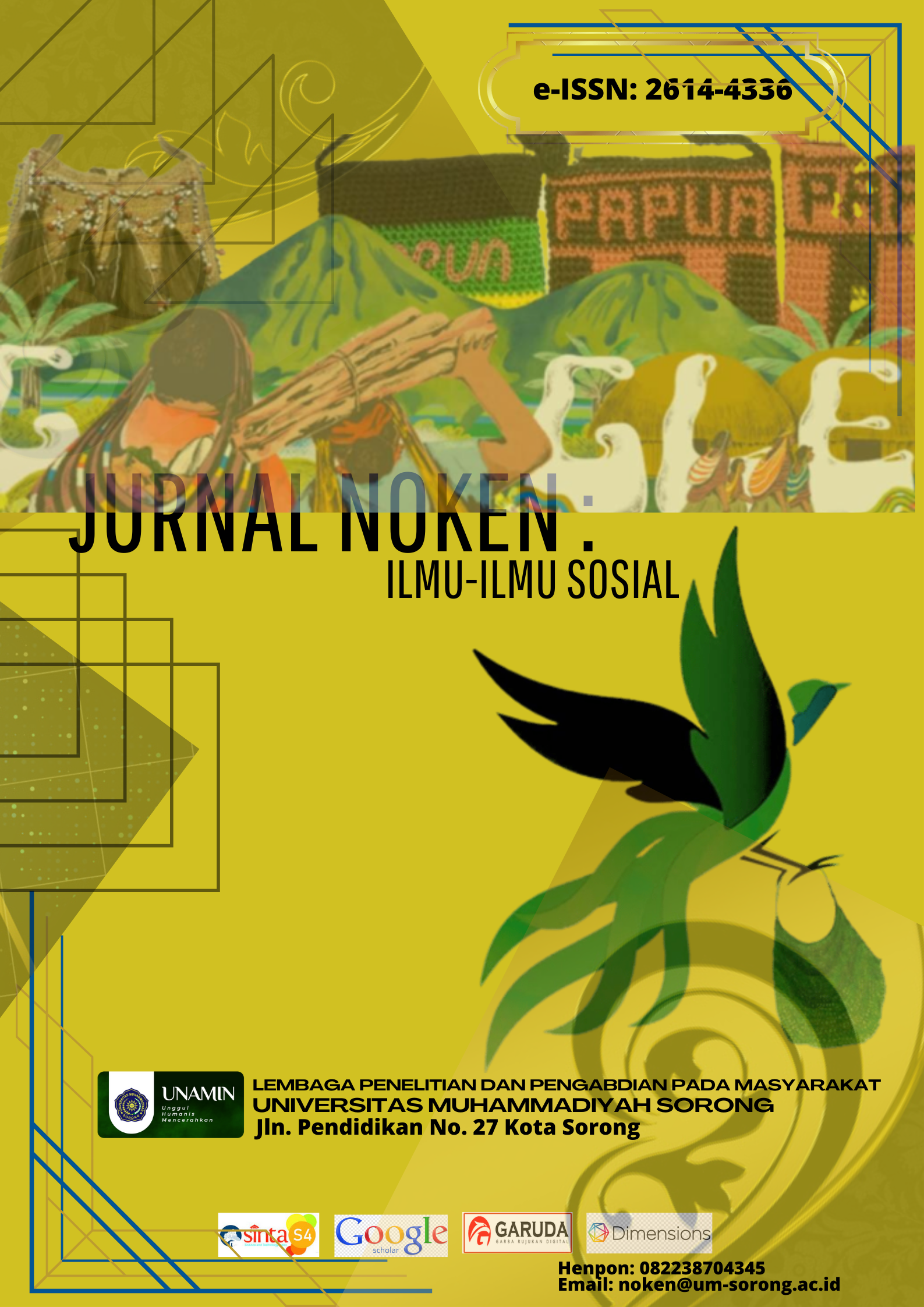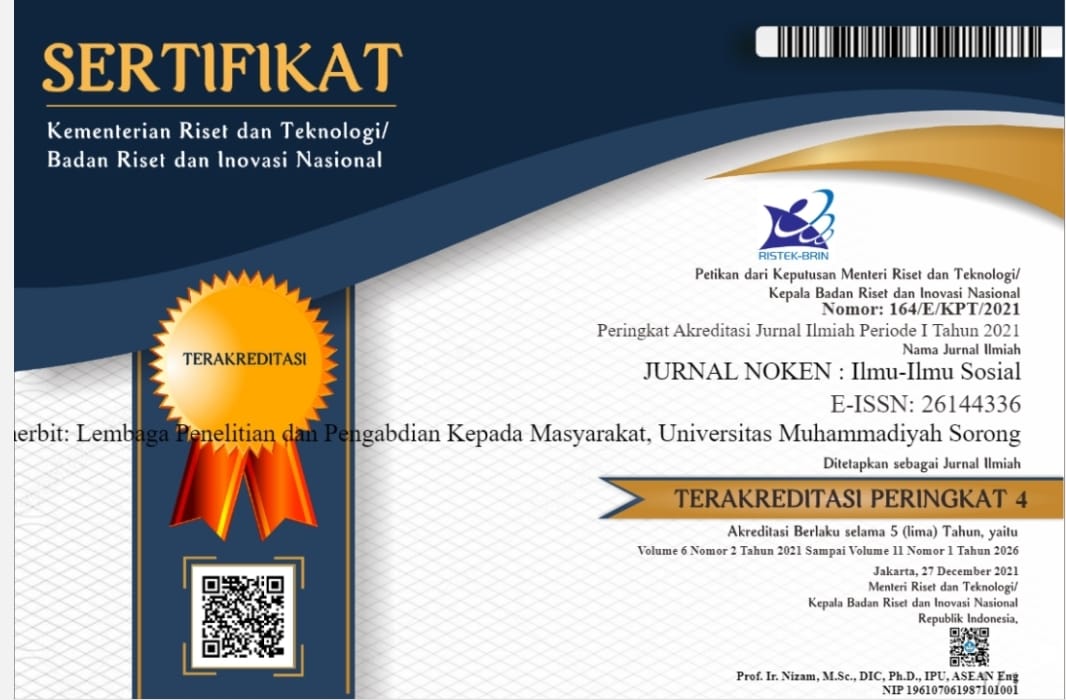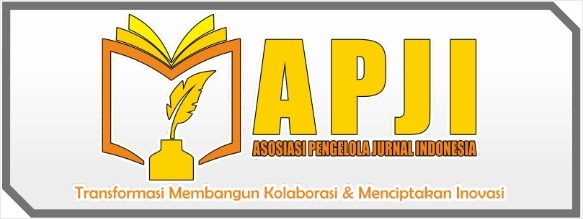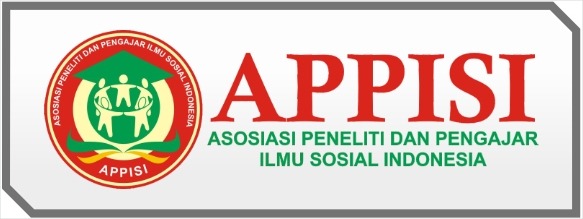Evaluation of Waste Management by the Environmental Agency in Kampar Regency
DOI:
https://doi.org/10.33506/jn.v11i1.4480Keywords:
Evaluation, Policy, EnvironmentAbstract
This study evaluates the waste management system implemented by the Kampar Regency Environment Agency in Kubang Jaya Village. This study aims to assess the effectiveness, efficiency, adequacy, responsiveness, and accuracy of waste management policies. A qualitative approach is used, utilizing interviews, observations, and document analysis to collect data. The findings show that waste management remains suboptimal due to limited waste collection, inadequate facilities, and budget limitations. The absence of routine waste transportation and inadequate community participation further exacerbate this problem. Additionally, the lack of a structured waste management system results in reactive rather than preventive action. Waste collection is only available in certain areas, so many households handle waste disposal independently. The absence of waste sorting at the source and the limited capacity of waste disposal facilities further complicate waste management efforts. The findings also reveal that government responses are often slow, with the accumulation of waste leading to environmental and health hazards. Although some initiatives, such as community-based waste management programs and waste banks, have been introduced, their implementation has remained inconsistent. The study highlights the need for increased budget allocation, infrastructure improvements, and increased community engagement to ensure sustainable waste management. Collaborative efforts between governments, the private sector, and local communities are essential to develop an integrated waste management system. Future research should expand its scope to other villages to provide a more comprehensive analysis of waste management throughout Kampar Regency. Overcoming these challenges requires long-term policy planning, regulatory enforcement, and public awareness campaigns
References
Anderson, E. P., Jackson, S., Tharme, R. E., Douglas, M., Flotemersch, J. E., Zwarteveen, M., Lokgariwar, C., Montoya, M., Wali, A., & Tipa, G. T. (2019). Understanding rivers and their social relations: A critical step to advance environmental water management. Wiley Interdisciplinary Reviews: Water, 6(6), e1381.
Apriliani, T. (2018). Evaluasi Pelaksanaan Tugas Dinas Lingkungan Hidup dan Kebersihan Kota Pekanbaru Dalam Penanggulangan Sampah (Studi di Kelurahan Tangkerang Timur).
Brookhart, S. M. (2018). Appropriate criteria: Key to effective rubrics. Frontiers in Education, 3, 22.
Cattaneo, C. (2019). Internal and external barriers to energy efficiency: which role for policy interventions? Energy Efficiency, 12(5), 1293–1311.
Cheng, K. M., Tan, J. Y., Wong, S. Y., Koo, A. C., & Amir Sharji, E. (2022). A review of future household waste management for sustainable environment in Malaysian cities. Sustainability, 14(11), 6517.
Dan, S., & Pollitt, C. (2015). NPM Can Work: An optimistic review of the impact of New Public Management reforms in central and eastern Europe. Public Management Review, 17(9), 1305–1332.
Erikson, R. S. (2015). Income inequality and policy responsiveness. Annual Review of Political Science, 18(1), 11–29.
Kahfi, A. (2017). Tinjauan Terhadap Pengelolaan Sampah. Jurisprudence, 4(1), 13.
Korolev, A. (2015). Needs/wants dichotomy and regime responsiveness. Critical Review, 27(1), 23–48.
Lewis, E. O., MacKenzie, D., & Kaminsky, J. (2021). Exploring equity: How equity norms have been applied implicitly and explicitly in transportation research and practice. Transportation Research Interdisciplinary Perspectives, 9, 100332.
Liu, L., Liang, Y., Song, Q., & Li, J. (2017). A review of waste prevention through 3R under the circular economy concept in China. Journal of Material Cycles and Waste Management, 19, 1314–1323.
Mukherjee, I., Coban, M. K., & Bali, A. S. (2021). Policy capacities and effective policy design: A review. Policy Sciences, 54(2), 243–268.
Mulasari, S. A., Husodo, A. H., & Muhadjir, N. (2016). Analisis Situasi Permasalahan Sampah Kota Yogyakarta Dan Kebijakan Penanggulangannya. Jurnal Kesehatan Masyarakat, 11(2), 97. https://doi.org/10.15294/kemas.v11i2.3989
Obona, E. E. (2016). Effective implementation of public policies in Nigeria: Issues and challenges. African Journal of Politics and Administrative Studies, 9(1), 122.
Pinotti, L., Manoni, M., Fumagalli, F., Rovere, N., Luciano, A., Ottoboni, M., Ferrari, L., Cheli, F., & Djuragic, O. (2020). Reduce, reuse, recycle for food waste: A second life for fresh-cut leafy salad crops in animal diets. Animals, 10(6), 1082.
Rendy M. (2015). Evaluasi kebijakan pengelolaan sampah di dinas kebersihan dan pertanaman Kota Palu (Evaluation of waste management policies at the sanitation and planting office of Palu City). E-Jurnal Katalogis, 3(11), 73–79.
Saputri, M. M., Hanafi, I., & Ulum, M. C. (2015). Evaluasi Dampak Kebijakan Pemerintah Daerah Dalam Pengelolaan Sampah Melalui Program Bank Sampah (Studi Di Bank Sampah Sumber Rejeki Kelurahan Bandar Lor Kecamatan Mojoroto Kota Kediri). Jurnal Administrasi Publik, 3(11), 1804.
Saputro, Y. E., Kismartini, & Syafrudin. (2015). Pengelolaan Sampah Berbasis Masyarakat Melalui Bank Sampah. Indonesian Journal of Conservation, 4(1), 84.
Sewak, A., Kim, J., Rundle-Thiele, S., & Deshpande, S. (2021). Influencing household-level waste-sorting and composting behaviour: What works? A systematic review (1995–2020) of waste management interventions. Waste Management & Research, 39(7), 892–909.
Shentika, P. A. (2016). Pengelolaan Bank Sampah di Kota Probolinggo. Jurnal Ekonomi Dan Studi Pembangunan, 8(1), 93.
Sugiyono. (2013). Metode Penelitian Pendidikan Pendekatan Kuantitatif, Kualitatif dan R&D. Alfabeta.
Suryani, A. S. (2014). Peran Bank Sampah Dalam Efektivitas Pengelolaan Sampah (Studi Kasus Bank Sampah Malang). Aspirasi, 5(1), 72.
Tato, S. (2015). Evaluasi Pengelolaan Sampah Kabupaten Gowa Studi Kasus Kecamatan Somba Opu. Jurnal Plano Madani, 4(2), 65–79.
Tukker, A. (2015). Product services for a resource-efficient and circular economy–a review. Journal of Cleaner Production, 97, 76–91.
Viennet, R., & Pont, B. (2017). Education policy implementation: A literature review and proposed framework.
Wong, C. P., Jiang, B., Kinzig, A. P., Lee, K. N., & Ouyang, Z. (2015). Linking ecosystem characteristics to final ecosystem services for public policy. Ecology Letters, 18(1), 108–118.
Zidane, Y. J.-T., & Olsson, N. O. E. (2017). Defining project efficiency, effectiveness, and efficacy. International Journal of Managing Projects in Business, 10(3), 621–641.
Downloads
Published
How to Cite
Issue
Section
License
Copyright (c) 2025 Adhe Fadli Farhan, Akhdiva Elfi Istiqoh, Irfan Harmain, Azrul Asyikin

This work is licensed under a Creative Commons Attribution-ShareAlike 4.0 International License.










